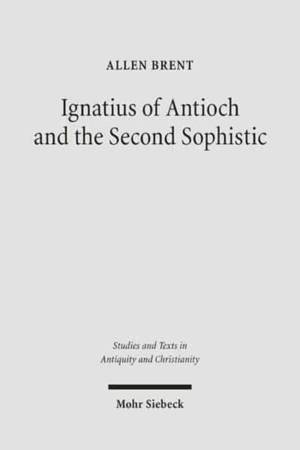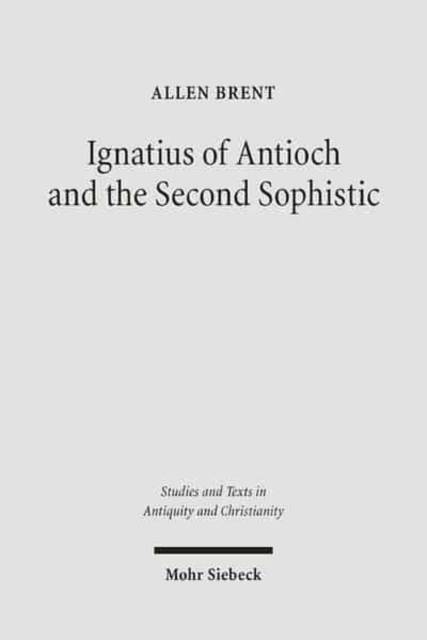
- Afhalen na 1 uur in een winkel met voorraad
- Gratis thuislevering in België vanaf € 30
- Ruim aanbod met 7 miljoen producten
- Afhalen na 1 uur in een winkel met voorraad
- Gratis thuislevering in België vanaf € 30
- Ruim aanbod met 7 miljoen producten
Zoeken
Ignatius of Antioch and the Second Sophistic
A Study of an Early Christian Transformation of Pagan Culture
Allen Brent
€ 125,45
+ 250 punten
Omschrijving
The letters of Ignatius of Antioch, whether considered genuine or pseudonymous, have been generally understood as addressing concerns and issues within the Church. Consequently, his language has been read as an expression of second century Judaeo Christianity or as a reply to Valentinianism, with little direct contact or concern with the surrounding pagan culture. Allen Brent submits Ignatius' language to a comprehensive analysis and seeks to show that both conceptually, and in terms of the form of his arguments, his language game is clearly that of the pagan, Greek city-states of Asia Minor in the Second Sophistic. The author shows from a variety of evidence, both literary, epigraphic and iconographic, that Ignatius' cultural background is in the world of the discourse of Hellenic autonomy against Roman imperial power, in the image-bearing mystery cults of the cities to whom he writes, in their embassies and Homonia treaties, and in their ideal of unity in a common culture expressed by their constitutions and cultural practices. Ignatius emerges as a brilliant missionary strategist, able to reshape ecclesial order in terms of secular social order and its conventions, whose work was scarcely comprehended by his more conservative Christian contemporaries and only later canonized by means of a gross distortion that obscured his original meaning.
Specificaties
Betrokkenen
- Auteur(s):
- Uitgeverij:
Inhoud
- Aantal bladzijden:
- 377
- Taal:
- Engels
- Reeks:
Eigenschappen
- Productcode (EAN):
- 9783161487941
- Verschijningsdatum:
- 1/04/2006
- Uitvoering:
- Paperback
- Formaat:
- Trade paperback (VS)
- Afmetingen:
- 155 mm x 231 mm
- Gewicht:
- 612 g

Alleen bij Standaard Boekhandel
+ 250 punten op je klantenkaart van Standaard Boekhandel
Beoordelingen
We publiceren alleen reviews die voldoen aan de voorwaarden voor reviews. Bekijk onze voorwaarden voor reviews.







